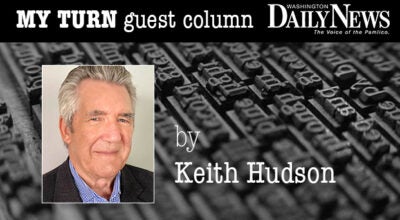Board’s aims to increase revenue from occupancy tax
Published 8:49 pm Saturday, March 21, 2015
One objective of the Washington Tourism Development Authority is to bring more people to Washington and have them stay at area lodging establishments during their visits.
The more people who stay in area hotels, motels and inns, the more revenue from the city’s occupancy tax the authority and city receive. For the most part, January and February tend to be slow months when it comes to filling up area lodging establishments. Those slow months may be seeing some increase in “heads in beds” at those hotel, motels and inns.
“January, occupancy was right around 35 percent. The highs during January, which show they are tourism-related highs, would be Tuesdays, so that’s business travel, which is a good thing because that shows that business travel is up in the area. That’s a good indicator,” said Lynn Wingate the city’s tourism-development director, during the authority’s meeting Wednesday. “Overall for the month of January, we’re up 16 percent from last year. So, that’s still pretty good.”
Wingate said figures for February indicate several things.
“February is a little more interesting for us because we want to be able to look at the impact of the wildlife festival. So, if you look at our top three days, you had Saturday, Feb. 14, so the fact that Valentine’s Day fell on a weekend was a benefit to us. … This is known to people in the Triangle (Raleigh-Durham-Chapel Hill) as a place to get away, a good place for a weekend getaway — come stay in a B&B, come dine in a restaurant. To me, there’s a marketing message in that,” Wingate said. “Our occupancy was almost 60 percent for Valentine’s night. That’s a pretty good indicator this is a romantic, little getaway.”
Wingate said the next two top days in February were Feb. 7 and Feb. 6, the first two days of the East Carolina Wildlife Arts Festival and North Carolina Decoy Carving Championships.
“We were at 58, 59 percent and 53 percent. So, for the month of February … we had 42 percent occupancy. The bad part about, if you look at 35 percent in January and 42 percent in February for the hotel recruitment side of things, is those are not great number. It shows that we don’t really have a market share to support another hotel. All that being said, if you look at the top two days in February and the increase we (the authority) saw in occupancy, it says we’re doing something right,” Wingate said.
For Valentine’s Day, occupancy was up 40 percent over the occupancy rate for the same day last year, she said.
“For the wildlife festival weekend, we were up 20 percent over last year,” Wingate said.
When occupancy rates are up, that usually translates into more revenue from the city’s 6-percent occupancy tax, she indicated.
Gross revenue generated by Washington’s 6-perccent occupancy tax increased nearly $13,000 in fiscal year 2014 when compared to the previous fiscal year, coming in at $222,208, according to figures provided by city and state officials.
A significant amount of occupancy-tax revenues are used to fund programs and projects intended to bring more people for overnight stays to areas served by agencies like the WTDA. The WTDA allocates two-thirds of its annual revenue to promote travel and tourism and the remaining third on tourism-related expenditures, according to the Magellan Strategy Group’s 2014 report on occupancy taxes in North Carolina.






